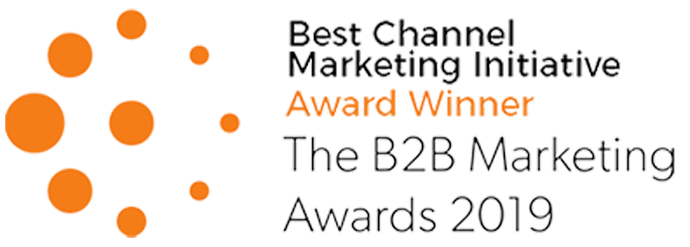
Two weeks on from the #B2BIgnite event in London and I’m still thinking about one of the presentations – ‘Humanising B2B Marketing’ by David Burnand, Director of Enterprise Marketing at Adobe.
Last week we shared a white paper, ‘The State of Inbound’ in association with HubSpot, the marketing platform. What do these two things have in common? The articulation of a shift in B2B marketing to more creative and visually led content as well as a change in sales approach from the hard sell to that of a trusted advisor. This has of course long been the case in B2C marketing but B2B marketing has perhaps been late in joining the party.
There’s an interesting piece by Shelley Lucas on LinkedIn at the moment - “Marketing’s Creative Suicide” which has aroused a huge response and a long and opinionated thread. In her piece, Lucas highlights the fact that many tech CMOs come from an engineering or computer science background which has led to marketing becoming more of a science than an art. What’s the issue I hear you cry?
Science is essential to the marketing process. Creativity should be applied once objectives have been understood. Lucas cites authors Mike Fitzsimons and Sue Bradley who use the term ‘cultural lobotomy’ to reference the repeated divorce of creativity from logic. She also references recent headlines, ‘The future of creativity in an automated world’ and ‘Don’t let an obsession with data kill your content marketing.’
Now might be an appropriate time to come out and declare my interest. I spent over twenty years in the design industry before I joined Sherpa, a tech marketing agency, a couple of months ago. The move has been a revelation…process, automation, data, scale, trackability, measurability, analytics, bots! As Lucas says, we’re marketers, we’re trying to sell something, we’d be a fool to attempt to do this without data, analytics and technology. However, as currently seems to be on everyone’s lips, we need to make marketing more ‘human.’
The scientific skills we’re working so hard to master now might be the stuff robots end up doing in the future putting us all out of jobs with campaigns being fully automated with workflows and algorithms fully in charge. However, in David Burnand’s keynote he referenced the very large profit gains that B2B companies have made when they take an emotional rather than a rational approach to B2B marketing. We’re all human after all (until the bots run procurement which can’t be far off) and we all generally acknowledge the line between home and work and business and personal are becoming more and more blurred and at every point we are a consumer.
So, a plea! Let’s acknowledge The World Economic Forum’s top ten skills for workers list with creativity ranking an impressive number three (out of ten) up seven places from 2015. Whilst recognising the value of science, process and analytics let’s not forget the hook, the reason to believe and the creative execution. As Burnand noted in his talk, design is key to customer experience (whether B2B or B2C) and I’ll leave you with some numbers rather than pictures…
41% of marketers report a greater market share as a result of design and 50% report more satisfied and loyal customers (Source: 2016 Forrester Study on Design). So, let’s not commit creative suicide but rather employ technology to track and measure our creative endeavours and fend off the bots from their complete cultural lobotomy of the marketing process.
I’d love to hear your thoughts, mail me on letschat@sherpamarketing.co.uk
post by topic
- ABM (31)
- Sherpa News (28)
- News (27)
- Demand Generation (20)
- Online Marketing (18)
- Inbound Marketing for Technology Companies (15)
- Channel Marketing (13)
- Content Marketing Strategy (12)
- Channel Transformation (11)
- sales and marketing alignment (11)
- Blended Sales & Marketing (9)
- Lead Follow-Up (9)
- Lead Management (8)
- Social Media (8)
- personalisation (8)
- Customer Relationship Management (CRM) (7)
- Lead Scoring (7)
- Martech (6)
- Buyers' Journey (5)
- Technology Marketing (5)
- Optimisation (4)
- email (4)
- Resellers (3)
- SEO (3)
- The IT Marketing Agency (3)
- channel agency (3)
- video (3)
- CSR (2)
- Charity Events (2)
- PX (2)
- Partner Experience (2)
- Team (2)
- Website Data (2)
- Data (1)
- Events (1)
- Harvard Business Review (1)
- birthday (1)
- customer experience (1)
- hubspot (1)
- marketing automation (1)



.png)
.png)
